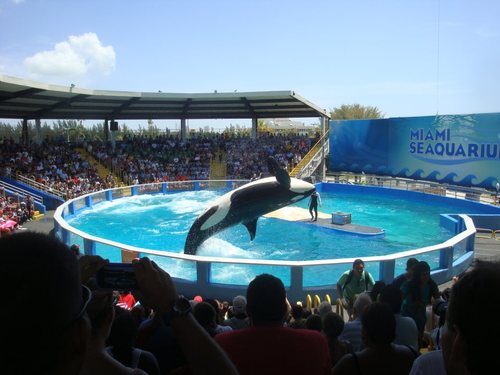By Sherrie Chen
Imagine the captive killer whale—a huge black figure with round white spots, big sharp-toothed mouth– the king of the ocean. It is so hard to connect it with the endangered species list.
The recent fact is that the National Oceanic and Atmospheric Administration will soon add Miami Seaquarium killer whale, Lolita, to the list.
According to NOAA, the Southern Resident population was depleted between 1965 and 1975 because of captures conducted for marine parks, and the population’s numbers remain low due to pollution, oil spills and noise from passing vessels. As a result, the Southern Resident killer whales were added to the endangered species 10 years ago.
Animal activists see this ruling as a victory. “It’s Lolita’s chance of freedom,” said Jared Goodman, PETA’s director of animal law. “It’s a huge step.”
Animal rights activists want Lolita to be released back into the wild if she is able to survive on her own after 40 years being of hand-fed instead of capturing food by herself. Another whale, Keiko, from the movie “Free Willy,” died only three years after being returned to the ocean. If Lolita fits into nature, it will give hope to everyone and the study of animals releasing.
On the other hand, Miami Seaquarium says Lolita’s is not going anywhere. “Lolita has been part of the Miami Seaquarium family for 44 years,” says Robert Rose, Miami Seaquarium Curator.
“Lolita is healthy and thriving in her home, where she shares her habitat with Pacific white-sided dolphins,” the curator who perform two shows daily says .
Whether Lolita will back in the wild or not, animal protection is necessary.”We are going to do everything to protect her (Lolita),” said the PETA attorney.

